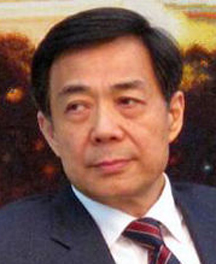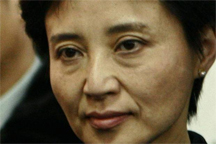CHONGQING, China, (Reuters) – China’s fallen politician Bo Xilai left a timebomb as a parting gift for the Communist Party leadership that threw him out — the smouldering demands for redress from the many targets of his harsh version of justice in the city he ruled.

For now, China remains transfixed on the fate of Bo and his wife Gu Kailai. She went on trial on Thursday, charged with murdering Neil Heywood, a British businessman at the heart of the scandal that felled Bo, once an aspirant to top power. The verdict will be announced later, as will Bo’s fate.
But after the Communist Party finishes a once-in-a-decade power handover later this year, demands for redress stemming from Bo’s rule could flare and bring pressure on China’s new leaders even as they try to put the scandal behind them.
Heading into 2013, they are likely to face an outcry, said lawyers and prisoners’ families who allege that Bo and his long-time police chief, Wang Lijun, presided over rampant injustice in the name of fighting criminal gangs and corruption in Chongqing, the southwest municipality that was their fiefdom.
“The barrier to dealing with these unjust verdicts now is that there are so many of them,” said Zou Zhiyong, a Chongqing businessman who said his father-in-law Li Xiaofeng is among the once rich or powerful prisoners planning to seek release and redress from convictions made under Bo.
“We’ll certainly appeal, but not yet, because we have to wait and take into account China’s special political environment,” said Zou. “We’ll wait until after the 18th Party Congress. Many cases will come forward then,” he added.
The congress, likely to be held in October, will announce the new leadership that will run China for a decade.

Lawyers and family members of several other prisoners told Reuters they also planned to appeal against their convictions after the party’s power transition.
It is difficult to estimate how many may do so. But one prominent lawyer, Chen Youxi, has said over 700 people were convicted as part of Bo’s anti-crime gang campaign, including over 70 who were executed.
In keeping with its usual reticence, the Chinese government has made little comment on the allegations of misrule under Bo. It removed him from the Chongqing post in March and announced in April that he was suspended from the party’s elite Central Committee and Politburo for “disciplinary violations.”
In March, Premier Wen Jiabao rebuked Bo for Chongqing police chief Wang’s flight to a U.S. consulate, the start of the unravelling of Bo’s career. He only obliquely criticised Bo’s rule in Chongqing.
“Over the years, the successive governments of Chongqing and the people in Chongqing have made tremendous efforts to promote reform and development,” Wen said at the time.
“And they have achieved remarkable progress in that regard. The present Chongqing municipal Party committee and the municipal government must reflect seriously and learn from the Wang Lijun incident.”
RED CULTURE
After arriving in Chong-qing in 2007, Bo, a former commerce minister, turned it into a showcase of revolution-inspired “red” culture and his policies for egalitarian, state-led growth. He also won national attention with a crackdown on organised crime.
His brash self-promotion irked some leaders in Beijing. But his populist ways and crime clean-up were welcomed by many of Chongqing’s 30 million residents, as well as others who hoped that Bo could take his policies nationwide.
Even now, many Chongqing residents still praise him.
